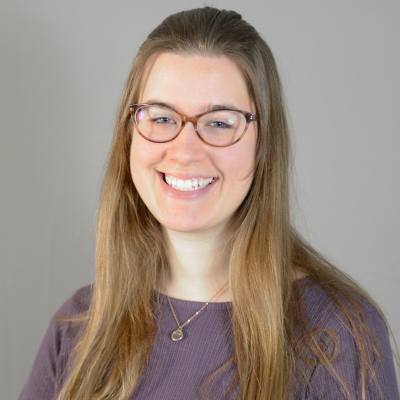Correction: Spelling has been corrected throughout for the name of TOMAGWA's executive director, Lee Ann Kroon. The proper name of the organization is TOMAGWA HealthCare Ministries.
Nonprofit organizations in Tomball and Magnolia are helping fill gaps in community services as the number of local families living below the poverty level has grown by more than 21 percent from 2010-16, according to data from the U.S. Census Bureau.
Much of the Tomball and Magnolia area has seen home prices rise at a higher rate than incomes in addition to monthly housing costs above the national average, according to census data. Combined with limited public transportation and low-cost housing options, nonprofit leaders say some residents are challenged by affordability.
“The community has changed, but resources have stayed roughly the same,” said Clark Friesen, coordinator of the Lone Star College-Tomball Civic Engagement Center, which offers students resources to engage in their communities.
As affordability challenges persist, long-standing nonprofit organizations—such as Tomball Emergency Assistance Ministries, or TEAM, Society of Samaritans, or SOS, and TOMAGWA HealthCare Ministries—are expanding services to provide long-term relief to low-income families as the number of clients grows.
According to census data, the number of families living below the poverty level throughout 15 census tracts—a neighborhood-level geography determined by the Census Bureau—within
Community Impact Newspaper’s distribution area grew from about 29,000 families in 2010 to more than 35,000 families in 2016.
Shirley Jensen, president of the board of directors for SOS, said about 20 percent of its applicants for services this year are first-time clients, an increase from last year’s 16 percent.
“Part of that is the geography. We’re way out here,” Jensen said. “Yes, [the people are] coming here, but we haven’t caught up with the industry or the businesses or resources for them.”
Low-income challenges
The median home value increased faster than the median household income from 2010-16 in 10 of 15 census tracts in the Tomball and Magnolia area. Additionally, median monthly rent exceeded the 2016 national average of $1,012 in all census tracts except one spanning eastern Magnolia city limits.
“There is a need for lower-income apartments,” TEAM Executive Director Becky Loving said. “Our apartment rents and house rents—most of our clients do rent—have just gone up so high based on supply and demand. That does put a real hardship on a lot of our clients.”
While the percentage of families living below the poverty level in most areas of Tomball and Magnolia is lower than the state and national averages of 13 and 11 percent, respectively—according to census data—suggested living expenses are higher than median household incomes in about half of the census tracts.
A family of four in Montgomery and Harris counties need to be able to spend $80,100 and $73,020 a year, respectively, on living expenses to meet the standard of living defined by the Economic Policy Institute’s family
budget calculator tool. The tool outlines the costs associated with a “modest but adequate standard of living,” EPI research assistant Zane Mokhiber said. Transportation costs account for about 18 percent of annual expenses in both counties.
However, the average U.S. household spent 16.5 percent of income on transportation costs, according to a 2015-16 Bureau of Labor and Statistics report.
As the Metropolitan Transit Authority of Harris County does not service the city of Tomball—and a similar service does not exist in Magnolia—nonprofit leaders said families in need often have difficulty accessing community services.
“Everybody in Tomball knows that transportation is a huge barrier,” Loving said.
According to 2016 census data, 26 percent of households in Tomball and Magnolia had one or no vehicle available.
Nonprofit leaders said the largest barriers low-income families in Tomball and Magnolia face are the lack of public transportation and affordable child care options. With no easy solution, discussions about improving access to these services are ongoing among nonprofits.
“For people needing jobs, that’s kind of step one: you have to find someplace to take care of your kid,” Loving said.
Low-income areas are also challenged by a lack of affordable education, housing and health care as well as food insecurity—a lack of access to nutritious, affordable food—and unemployment or underemployment, Jensen said.
“Tomball is a place where people live, but are there a lot of places to work? There’s services industries for the town, but you have to go somewhere else to go to work a lot of times,” Friesen said.
Nonprofits meet growing needs
As the populations of Tomball and Magnolia increase, so do the needs, local nonprofit leaders said. In Magnolia, SOS served 445 applicants in July with 18 percent of those being first-time clients, according to SOS information.
“Most of them are new to the area,” Jensen said.
SOS, founded in 1986, provides food, clothing, emergency assistance and newly launched job assistance workshops in the Greater Magnolia area. SOS Assistant Executive Director Chandra Adams said the organization takes a holistic approach to serving its clients.
“We’re looking to partner with our clients on not just meeting the immediate need but solving the bigger problem in regards to their poverty,” Adams said.
In addition to food and crisis assistance, SOS began offering monthly job assistance workshops this spring.
Additionally, SOS offers complimentary outfits for job interviews at its Magnolia resale shop and gas vouchers for travel to job interviews, Adams said.
“We are looking to partner with Magnolia in re-employing its community,” she said.
Jensen said SOS also plans to extend its hours and work more closely with homeless individuals in Magnolia.
“We’re ready to meet the needs,” Jensen said.
In Tomball, TEAM has also welcomed a growing number of clients. Loving said TEAM serves about 55 new families every month. TEAM—established in 1985—offers food, clothing and emergency assistance to families in need.
After forming a committee earlier this year to look at the need for better paying jobs locally, TEAM is also working to partner with the United Way Thrive program, the Texas Workforce Commission and the Lone Star College System to connect clients with job resources, Loving said. She said she hopes to have a program in place by next spring.
“We’re really looking forward to getting programs in place ... to get jobs for the ones who don’t have jobs and get skills or career training,” Loving said.
TEAM also launched the Tomball Benevolence Network in April, a program that connects residents in need to resources available throughout the Greater Tomball area, Loving said. Auto repair shops, electricians, plumbers, roofers, mental health clinics and churches are already a part of TBN, donating services or offering lower rates.
“We have a lot of players in the community that are working with us, and I think that’s what it’s going to take,” she said. “It’s not a matter of whether people out there are willing; it’s just a matter of communicating and coordinating the resources that are already there.”
Meeting health care needs
In addition to emergency and job assistance needs, TOMAGWA is working to meet local health care needs.
TOMAGWA Executive Director Lee Ann Kroon said the nonprofit grew its Magnolia services from a weekly clinic to a permanent site in March 2017 to keep pace with community needs. The family practice health care center—which began nearly 30 years ago—serves uninsured, low-income individuals in the Tomball, Magnolia and Waller areas.
“We found that we needed a more regular presence there,” Kroon said. “It has steadily grown over the year and a half that we’ve been open.”
Kroon said the number of new patients in Tomball is also increasing, and TOMAGWA is hoping to expand its dental and lab services to offer more comprehensive services during visits.
On-site services include immunizations, vision screenings, and dental and lab services as well as family care, Kroon said. TOMAGWA is also looking for more medical specialists with which to partner and offer services, she said.
“Every week we do new patient screenings, and the waiting room will be full,” Kroon said. “The reason why we’ve really tried to do as much as we can on-site is because we know that there’s barriers for transportation.”
Get involved
Visit the
SOS & Friends Care Fest 2018 on Oct. 20 from 10 a.m.-2 p.m. at the West Montgomery County Community Development Center for free community services and family activities, including a job fair, a blood drive, food giveaways, haircuts and children's activities.
Volunteer or donate professional services through the
Tomball Benevolence Network by contacting Karen Guiles at 517-648-4159.
Donate to TOMAGWA HealthCare Ministries at
www.tomagwa.org/donate.
See how median household incomes, home values, poverty levels and monthly housing costs compare in the interactive map below.








